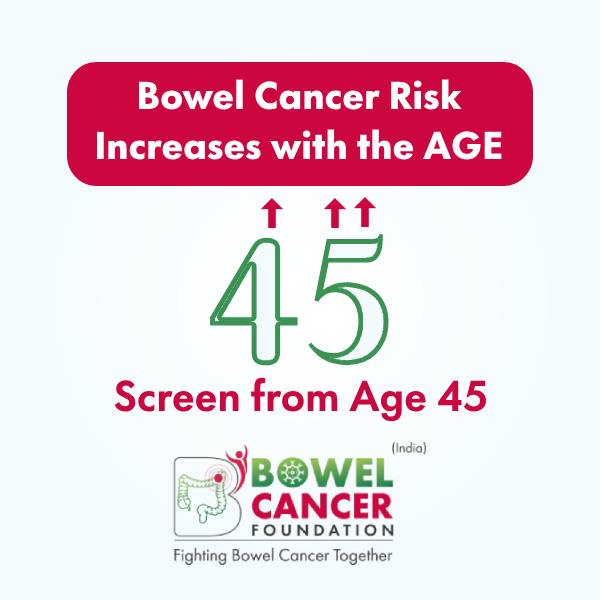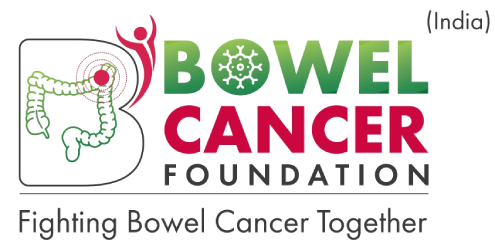- 7904139064 Call Us Now
- info@bowelcancerfoundation.org Email Us
Advocate for Screening at 45

The Bowel Cancer Foundation advocates for bowel cancer screening at age 45 for individuals at average risk* of bowel cancer. This screening is crucial for early detection and prevention of the disease. Bowel cancer, also known as colorectal cancer, is one of the most common types of cancer worldwide, highlighting the importance of early detection in improving survival rates and reducing the need for aggressive treatments.
Traditionally, screening for bowel cancer has been recommended for individuals over the age of 50. However, recent studies have shown an increase in the incidence of bowel cancer among younger people. By 2021, several authoritative organizations, including the American College of Gastroenterology (ACG), the US Preventive Services Task Force (USPSTF), and the US Multi-Society Task Force (USMSTF) on Colorectal Cancer (CRC), updated their guidelines to recommend screening from age 45 instead of age 50. This change was based on modeling studies that demonstrated the benefits of screening in younger individuals outweigh the potential harms and costs.
The Bowel Cancer Foundation Advocate for Screening at 45 – 74, for screening using a faecal immunochemical test (FIT) every 2 years. For individuals aged 76-85, the ACS, USPSTF, and USMSTF recommend the decision to be screened to be based on a person’s preferences, life expectancy, overall health, and prior screening history.
A positive FIT result indicates the presence of blood in the stool and requires immediate follow-up with a gastroenterologist to discuss the result and plan for further investigation, typically through a colonoscopy within 30 days. It’s important to note that the presence of blood in the stool can be caused by conditions other than bowel cancer, such as medications, polyps, hemorrhoids, or inflammation of the bowel. However, further investigation through colonoscopy is necessary to determine the underlying cause and remove any identified polyps or confirm a diagnosis of bowel cancer.
A negative FIT result means no blood in the stool was detected, and it is recommended to repeat the test every 2 years. However, it’s essential to understand that a negative result does not guarantee the absence or non-development of bowel cancer, as some bowel cancers may not bleed consistently or at all. If any symptoms of bowel cancer develop between screenings, it is crucial to seek immediate medical attention from a colorectal surgeon or gastroenterologist.
People at average risk include those with (i) no first- or second-degree relative with bowel cancer; or (ii) one first-degree relative with bowel cancer diagnosed at 55 years or older; or (iii) one first-degree and one second-degree relative diagnosed with bowel cancer at 55 years or older.
